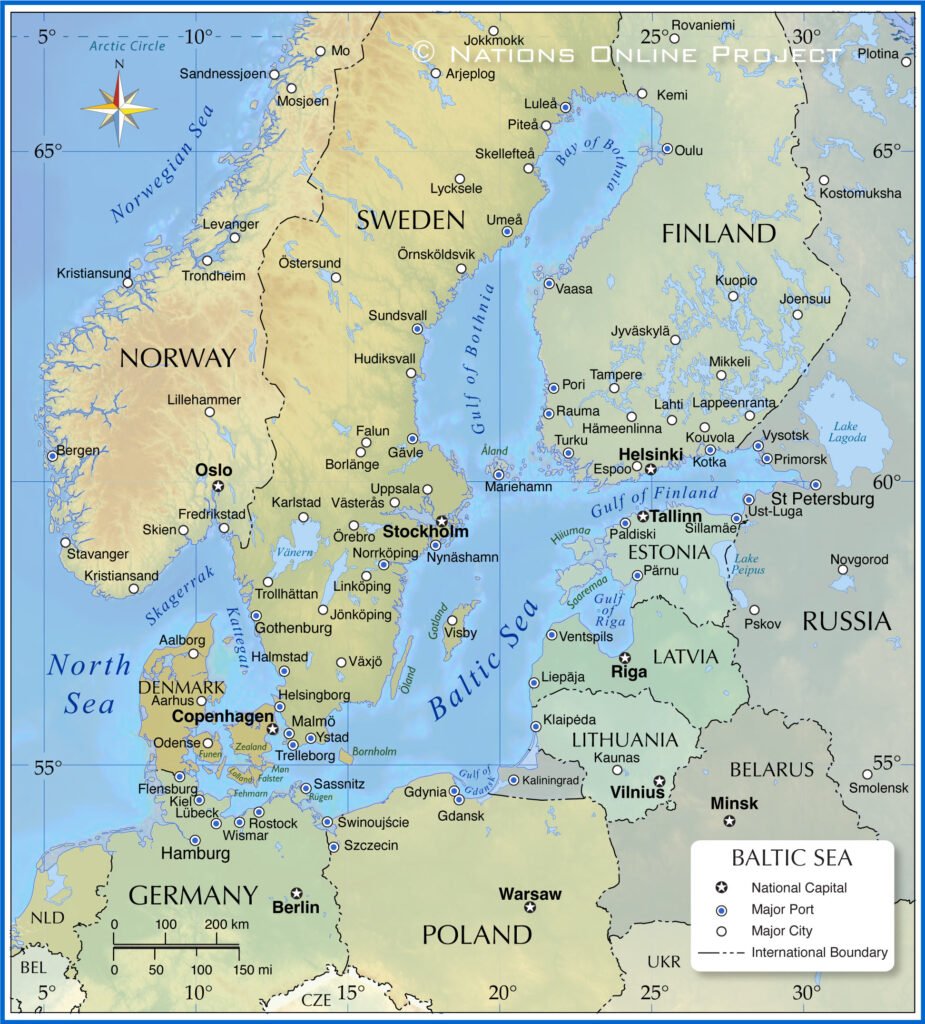How To Get Residency in Estonia: A Comprehensive Guide
Capital: Tallinn
Population: 1,373,101 (2024)
Ethnic groups: 68.5% Estonians, 21.0% Russians, 5.4% Ukrainian
Area: 45,339 km2 (129th)
Offical Language: Estonian
Currency: Euro
GDP per Captial (PPP): $49,670 (2025 estimated, 42nd)
Human Development Index: 0.905 (2023, 36th)

Country Profile:
Situated on the coast of the Baltic Sea in northeastern Europe, Estonia forms the northernmost of the three Baltic States, together with Latvia and Lithuania.
Its landscape is remarkably rich for a country of its size. Spanning 45,000 square kilometers, Estonia is dotted with over 2,000 islands and 1,000 lakes, crisscrossed by thousands of rivers, and is blanketed by forests that cover more than half its territory.
Estonia is a member of the European Union, NATO, and the Schengen Area. On a lighter note, it also holds the unique distinction of having the most international supermodels per capita in the world.
Economically, Estonia is a powerhouse of innovation. It has built a global reputation on its dynamic digital economy and its world-famous e-residency program, which are part of a broader strategy to encourage foreign investment.
Visa and Immigration System:
If one were to choose a European country for relocation, Estonia would be an appealing choice for several reasons: its advanced e-commerce sector, low tax policies, business-friendly environment, and relaxed residency time restrictions within the country.
Estonia is often referred to as the Silicon Valley of the Baltic Sea, with a strong commercial atmosphere. Since 2014, the country has offered an e-Residency program, allowing non-EU individuals to establish an EU company remotely in Estonia, and use local banking, online services, and tax systems without having to physically enter the country.
This is the largest e-Residency program in the world, and over the past decade, it has attracted more than one hundred thousand entrepreneurs from around the globe who have obtained the Estonian e-Residency card. This program is also a popular first step for many freelancers becoming digital nomads.
In rare cases, some individuals have also successfully used their Estonian e-Resident status or remote company identity to apply for driving licenses abroad, open stock accounts, or circumvent restrictions imposed by Open AI and digital currencies.
It’s important to note that while participants in the e-Residency program can receive an e-Resident card, it does not grant any physical residency rights and does not allow entry into Estonia or other Schengen Area countries. Those interested in this program can search for more information at: https://e-estonia.com/.
For those wishing to physically reside in Estonia, it is necessary to apply for either a Type C short-term residency permit or a Type D long-term residency permit.
Estonian long-term residency permits are generally valid for up to five years and can be renewed for up to ten years. They are essential for anyone looking to immigrate to the country.
Typically, the following groups are eligible to apply for an Estonian long-term residency permit:
1. Those wishing to reunite with a spouse/partner or direct relatives in Estonia;
2. Individuals studying in Estonia;
3. Those who have found employment within Estonia;
4. Investors in Estonia.

Investment-related Estonian residency permits can be categorized into three main types:
1. General Investment Visa: This can be further divided into two types:
One issued to company shareholders, requiring an investment of more than 65,000 euros in local business activities;
Another issued to self-employed individuals, requiring an investment of more than 16,000 euros in personal business activities.
2. Major Investor Visa: This visa requires participants to invest no less than one million euros in Estonian companies or funds. A significant advantage of the Major Investor Visa is that it imposes no residency duration requirements; holders do not need to reside in Estonia.
3. Startup Visa: Issued to foreigners who establish companies in Estonia. Unlike other Eastern European countries, business plans such as intermediary companies, supermarkets, restaurants, and similar ventures do not qualify for the Startup Visa in Estonia. Applicants for this visa need a technically supported, sufficiently large, and innovative business plan approved by the local Startup Committee.
Besides these types of long-term residency permits, Estonia also offers a non-immigrant visa application route: the Digital Nomad Visa.
This visa is available to freelancers and remote workers with a stable income, valid for only one year and is not renewable.
Currently, the economic requirement for the Estonian Digital Nomad Visa is a monthly income of at least 4,500 euros.
Permanent Residency & Citizenship:
Foreign nationals who have legally resided in Estonia with a long-term residence permit for five years, have valid health insurance for the Schengen area, understand Estonian culture, have reached at least a B1 level in the Estonian language, and have a stable income in the country are eligible to apply for permanent residency.
Foreign nationals who have legally resided in Estonia for eight years, or for five years after obtaining a permanent residence card, and who pass government-organized tests on language, national institutions, and culture, are eligible to apply for naturalization to become Estonian citizens.
Passport Power:
Estonia does not recognize dual citizenship. Its passport ranks 8th globally, and holders can freely travel (either with visa on arrival or visa-free) to 184 countries and regions. (Aug 13rd, 2025)

Useful Links:
Estonia Visa Online Platform:https://eelviisataotlus.vm.ee/d/eng/page/1/13x659xdgelqwyfbb57vhoet97lh3n6py2djbz22ks3e44ptnqpddc0hvduw3xqxi8bing4kjl98z448bxsoxakursq0c4raxy17
Estonia Digital Nomad Visa:https://www.e-resident.gov.ee/nomadvisa/
Ministry of Foreign Affairs:https://vm.ee/en/consular-visa-and-travel-information/visa-information/application-long-stay-d-visa
Visit Estonia:https://www.visitestonia.com/en
Estonia Residency By Investment: https://www.politsei.ee/en/instructions/residence-permit-for-company-shareholder
Home > South America > Chile > How To Get Residency in Chile: A Comprehensive Guide